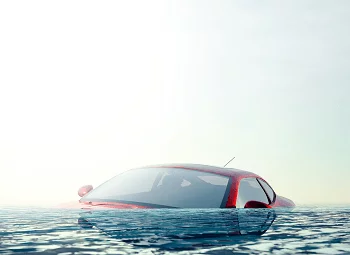
Car insurance is designed to cover your vehicle against loss, but there are different coverages meant to cover different dangers. One of these dangers is natural disasters.
Flooding is a natural disaster that has been increasing in frequency across the U.S. in recent years. Every year, floods cause billions of dollars in damage. One bad flood can destroy your car by flooding the engine and more. Unfortunately, most flood damage isn’t covered by policies such as your home insurance policy. So, does car insurance cover damages caused by flooding?
Thankfully, car insurance can cover flood damage as long as you have the right insurance.
Comprehensive coverage provides compensation for loss of or damage to your vehicle caused by incidents aside from collision. This includes fire, wind, hail, lightning, theft, vandalism and natural disasters such as flooding.
Be sure your car insurance policy has the right limits to cover the replacement cost of your vehicle in case it is completely totaled due to a flood or other natural disaster.
Is Comprehensive Coverage Required?
No state requires comprehensive coverage in order for drivers to operate their vehicles legally. In general, states require a minimum amount of bodily injury and property damage liability in case you cause injury or damage to someone else while driving.
Comprehensive coverage can be purchased on its own in addition to liability requirements, but it more often comes as part of a full coverage car insurance policy, which also includes:
- Collision Coverage: Collision coverage provides compensation for damages to your vehicle due to a collision with another vehicle or object.
- Uninsured/Underinsured Motorist: This coverage provides compensation for accidents involving a driver not carrying insurance.
- Medical Payments Coverage: Depending on what state you live in, you may have the option for medical payments coverage or personal injury protection. Both coverages provide compensation you and your passenger’s medical expenses after an accident, no matter who is at fault.
- Roadside Assistance: Roadside assistance provides help for trip interruptions such as running out of gas, flat tires and towing.
Avoiding Flood Damage
Unfortunately, flooding is hard to avoid for vehicles. When possible, park on higher areas and inclines. Try to avoid parking on the street and keep the vehicle in your garage when not being used.
If a flood does occur, make sure to have the damage evaluated and the engine inspected before considering getting behind the wheel again.



